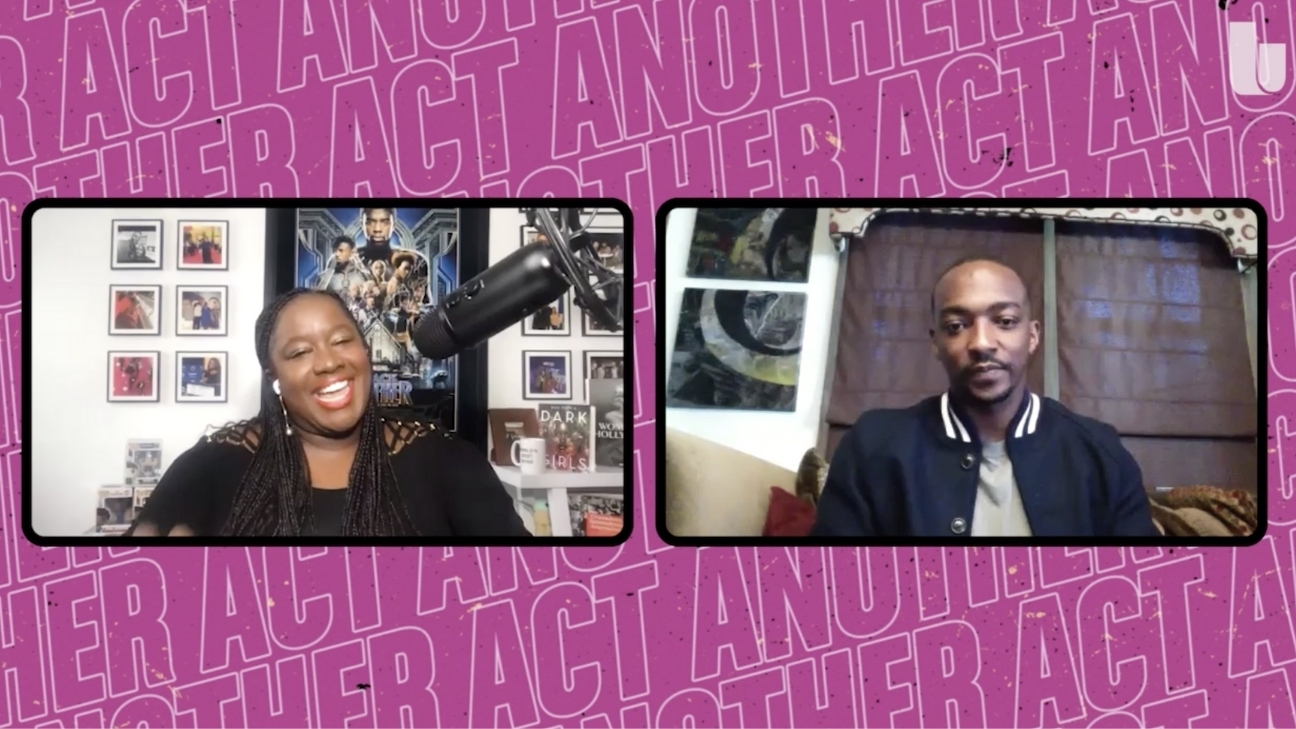In ‘Falcon and the Winter Soldier,’ a world that feels painfully like our own A Black superhero steps into the spotlight when neither the world nor the Avengers are OK
Warning: While there are no spoilers for The Falcon and the Winter Soldier here, there are a myriad from the Marvel films that came before it. If the details of Avengers: Infinity War or Endgame are a mystery to you, don’t worry. Because Marvel, home of the Scarlet Witch, X-Men and the Hulk, has taken on the patina of documentary.
As The Falcon and the Winter Soldier begins its six-episode arc on Disney+ Friday, the inhabitants of the Marvel Cinematic Universe (MCU) are reeling. On April 27, 2018, Thanos, a supervillain with an exceptionally rough beard, snapped half of all life in the universe – including half of the Avengers – out of existence. (That kind of plot point can be hard on spinoffs.) Almost exactly a year later, the Hulk snapped everybody back. The Avengers reassembled and Thanos was defeated. But neither the world nor the Avengers are OK.
The difference between then and now is us. Where once the MCU was a butt-kicking, quip-throwing, time-bending romp through the multiverse, it is now a coping mechanism. If that sounds ridiculous to you, welcome back to Planet Earth.

Chuck Zlotnick
On March 11, 2020, the World Health Organization declared COVID-19 a pandemic and the world as we knew it stopped. Almost exactly a year later, vaccines are slowly making their way into people’s arms and we’re contemplating that moment when we will be snapped back to “Before” or what we used to quaintly call “Normal” or “Outside.”
But that’s not going to happen. We can’t go back. There is only Now. More than 500,000 Americans are gone. More than 2.65 million people have died worldwide. Public health systems that once appeared reasonably competent – or at least apolitical – have been shaken to their core. I will not belabor the metaphor because I don’t have to.

Anthony Mackie talks about his role in The Falcon and the Winter Soldier on Disney+.
The plot of The Falcon and the Winter Soldier commences just months after the events of the last movie. Yet its world no longer feels like the latest in a series of blockbusters where everyone lives in a preordained happily ever after. Instead, it feels a lot like our own world — grief-stricken, divided and unsure. And that is a strange place from which to watch a Black man with wings. Falcon has been given both the shield and the mantle of Captain America by the supersoldier Steve Rogers himself. And just as we knew that long-standing systemic inequities in health care and the economy meant COVID-19 would have disastrously disparate effects on African Americans, it is clear that Falcon’s journey will be wildly different from that of the white Captain America who came before him.
And add a few more fourth-wall obliterating facts to this mix: The social and economic effects of the pandemic of 2020 are reminiscent of those associated with the Black Death of the late Middle Ages. The year included a societal upheaval over the role of race in American life so large it has been called a reckoning. And we witnessed the shocking death of Chadwick Boseman, our Black Panther and Marvel’s first Black superhero. Trust me, you don’t need to have watched Avengers: Infinity War or Endgame to understand what is happening in Falcon. Just surviving 2020 is enough.
Most conversations about what it means to be Captain America usually involve varying interpretations of masculinity or American exceptionalism, and in 2019, that was appropriate. If you’re comfy in the Marvel world, you understand that Captain America starts his arc as the symbol of the American triumph at the end of World War II and ends it as a counterweight to governmental excess.
But another important narrative considered in the movie but rarely discussed critically is Captain America as a story of dislocation, at first because he was deemed to have no power and later because his power was feared. The secret to the hero is not only the Super Soldier serum but a permanent feeling of being apart from America despite being chosen to represent it at its apex — an alienating feeling that while the promise of America may not have yet come true for him, its promise is still worth fighting for. That’s a hella Black story. That’s a hella Black-in-2021 story.
It also neatly explains why when the time came to give up his shield, Cap gave it to Falcon. Because of all the folks he might have considered, he chose the one who told him (in Captain America: The Winter Soldier) that everything Cap needed to know about the 70 years he lost frozen in the ice could be found in Marvin Gaye’s soundtrack to the film Trouble Man.
Get it now? Falcon’s own arc in the Marvel comics is also one of dislocation — an arc born of racism, personal, systemic, all of it — to becoming Marvel’s first African American superhero and leader of the Avengers. And it goes through his first alter ego as Snap Wilson — Marvel’s first Trouble Man until Luke Cage comes along.
Or did I just find a meaning that was not there Before and is there Now? Perhaps it’s another example of the vast difference between the Black gaze and the white gaze — a difference defined by that same sense of dislocation that while the promise of America may not have yet come true for us, its promise is still worth fighting for. It’s another deeply weird consequence of COVID-19: The alpha-male, superwhite, superprivileged definition of Captain America is gone because that Captain America is gone. The reasons are varied, but watching it, the result feels true.
* This article was originally published here
Comments
Post a Comment